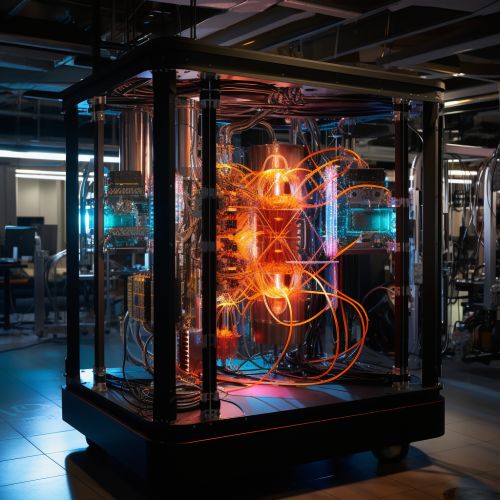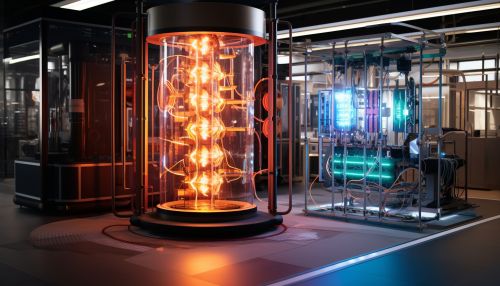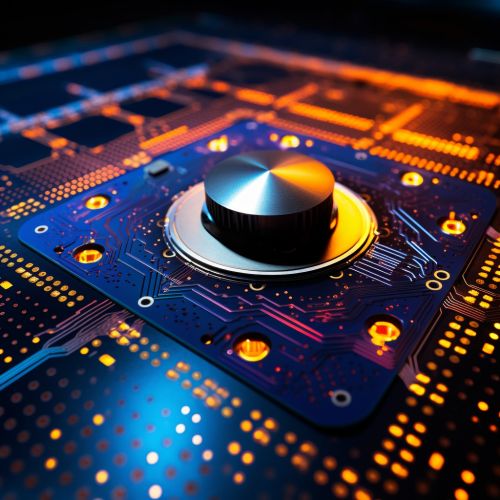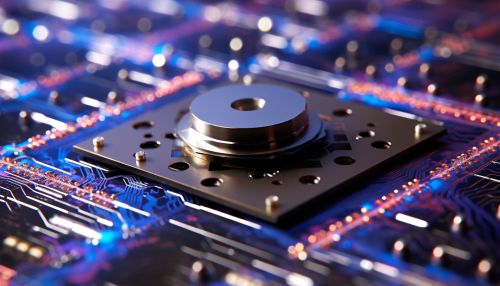Quantum Computation
Introduction
Quantum computation is a field of study focused on the development and application of quantum computers, which operate on the principles of quantum mechanics. Quantum computers leverage quantum bits, or qubits, to perform computations that would be much more difficult, or even impossible, for classical computers.


Quantum Mechanics and Computation
At the heart of quantum computation is the science of quantum mechanics, a branch of physics that describes the peculiar behaviors of particles at the quantum level. Quantum mechanics introduces concepts such as superposition and entanglement, which are fundamental to the operation of quantum computers.
Superposition
In quantum mechanics, superposition refers to the ability of a quantum system to exist in multiple states at once. This is a departure from classical physics, where a system can only be in one state at a time. In the context of quantum computation, a qubit can exist in a state of 0, 1, or any superposition of both. This allows quantum computers to process a vast number of possibilities simultaneously.
Entanglement
Quantum entanglement is another phenomenon unique to quantum mechanics. When particles become entangled, the state of one particle immediately affects the state of the other, no matter the distance between them. This property is used in quantum computation to create a sort of 'quantum link' between qubits, enabling faster and more complex computations.
Quantum Computers
Quantum computers are the physical realization of quantum computation. They utilize qubits to perform calculations, leveraging the principles of superposition and entanglement to process information in ways that classical computers cannot.
Qubits
A qubit, or quantum bit, is the basic unit of quantum information. Unlike classical bits, which can be either 0 or 1, qubits can be in a state of 0, 1, or a superposition of both. This property allows quantum computers to process a vast number of possibilities simultaneously.
Quantum Gates
Quantum gates are the building blocks of quantum circuits. They are operations that can be applied to a set of qubits, changing their state. Quantum gates are analogous to logic gates in classical computation, but with the added complexity of quantum mechanics. These gates allow for the manipulation of qubits, enabling the performance of quantum algorithms.


Quantum Algorithms
Quantum algorithms are computational procedures that run on quantum computers. They leverage the principles of quantum mechanics to solve problems more efficiently than classical algorithms. Some well-known quantum algorithms include Shor's algorithm for factorization and Grover's algorithm for search.
Shor's Algorithm
Shor's algorithm, proposed by Peter Shor in 1994, is a quantum algorithm for integer factorization. It is exponentially faster than the best known classical factoring algorithm, making it a potential threat to current cryptographic systems that rely on the difficulty of factorization.
Grover's Algorithm
Grover's algorithm, proposed by Lov Grover in 1996, is a quantum algorithm for unstructured search. It provides a quadratic speedup over classical search algorithms, making it a powerful tool for searching large databases.
Challenges and Future Directions
Despite the potential of quantum computation, there are still many challenges to overcome. These include issues related to qubit stability, error correction, and the scalability of quantum systems. However, ongoing research and development in the field continue to push the boundaries of what is possible with quantum computers.
